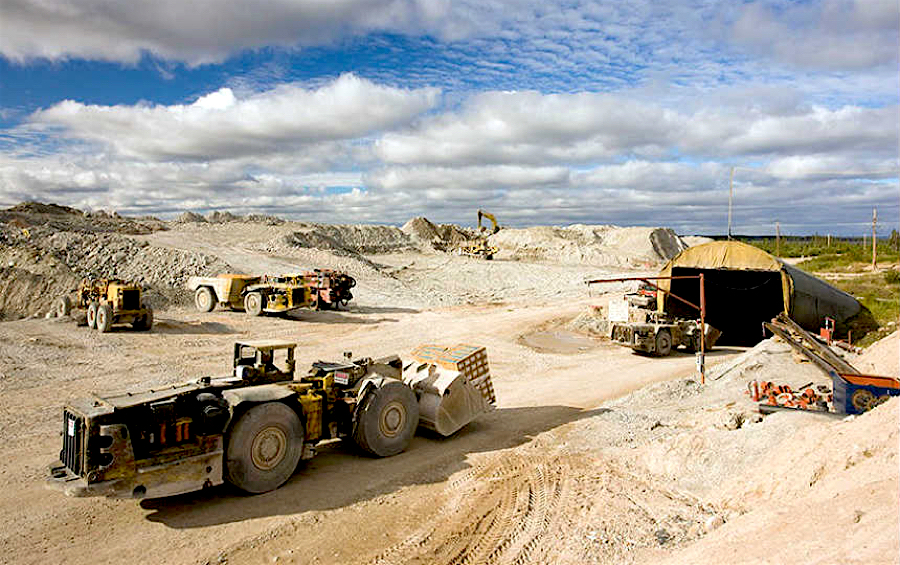
Transparency is one of the main themes tackled in the fantastic Africa Progress Report 2013 on Equity in Extractives. This lack of transparency in the extractives sector is the bane of many developing countries—who cannot hold governments or transnational corporations (TNCs) accountable because the global economic system is set up in such a way as to promote opaqueness of deals. It is also set up in such a way that TNCs can work in developing country, derive their profits from that country but bank the monies made from that country in safe havens where they pay little or no tax without having to give back to these countries in the form of adequate tax payments or comparable social responsibility initiatives. Is it any wonder that some major financial institutions were able to take advantage of such an imbalanced and opaque global system deficient of adequate checks and balances to mismanage the global economy in such a way as to land us all into a financial trough from which the globe has not recovered?
Under the cloak of secrecy, tax evasion and avoidance and other forms of illicit outflows are carried out with impunity because perpetrators are confident that the possibility of detection is slim to none. If world leaders make transparency a norm, doing away with safe havens, plus making it difficult to avoid or evade tax, billions and possibly trillions of dollars in illicit transfers could potentially be detected and stopped.
Costs associated with a lack of transparency
Kevin Watkins, Executive Director of the Overseas Development Institute (ODI) explains in a recent article , “What is less widely recognized is the harm inflicted on the poorest countries. Trade mispricing – a practice that facilitates the shifting of profits to low-tax jurisdictions – costs developing countries in excess of US$550bn annually: more than five times annual aid flows”. Who bears the greater burden of the current global economic system with regards to a lack of sufficient transparency? It is the poor nations. If the globe would promote a more equitable and transparent economic system that reduced trade mispricing alone which constitutes only one form of tax avoidance, developing countries would no longer need aid because they would have the equivalent of five times as much money as they get from aid coming to them because the current leakages would have been plugged. In addition, the latest report by Global Financial Integrity explains that “Between 1980 and 2009, the economies of Africa lost between US$597 billion and US$1.4 trillion in net resource transfers away from the continent.” These are colossal sums.
Recent Developments
There is however some good news. Since the mid-2000s, there has been a growing movement of civil society organizations pushing for transparency specifically in the extractives industry. Their efforts have yielded some fruit in some countries which though play a major part in the extractives sectors, previously refused to make their corporations more transparent and accountable.
United States of America
Here is an excerpt from the 2013 Africa Progress Report : “In July 2010, the United States Congress passed the Dodd–Frank Wall Street Reform and Consumer Protection Act. Its Section 1504 represents a landmark, requiring full disclosure of “any payment made by the resource extraction issuer, a subsidiary of the resource extraction issuer, or an entity under the control of the resource extraction issuer to a foreign government … for the purposes of the commercial development of oil, natural gas, or minerals.” In 2012, the Securities and Exchange Commission (SEC), the principal government agency responsible for regulating the US financial sector, adopted the final rules for implementation of the legislation. Companies will be required to file annual reports with the SEC. Critically, the reporting will require public disclosure of all payments in excess of US$100,000 on a project-by-project basis”. The United States of America’s lead on a charge against opaque deals is commendable. Other key players in the extractives industry like the European Union, Canada and Switzerland were not as keen on pushing for such openness of records but later they acquiesced.
European Union
On June 12, 2013, the European Parliament approved EU Transparency and Accounting directives. This move was welcomed by Kofi Annan chaired Africa Progress Panel who issued a press statement expressing their support. The press statement added that, “The vote in the European Parliament creates a binding legal requirement for EU-listed and large privately owned oil, gas, mining and logging companies to publish all payments over €100,000 to governments in every country where they operate.”
Switzerland
Like Canada, Switzerland is a huge player in the commodities market. On June 11, 2013, a day before the EU adopted its new transparency measures the Bern Declaration issued a press release stating, “On the eve of the adoption of new EU transparency rules for commodities companies, Switzerland has now also taken the next political step. As today’s decision by the National Council shows, there is now broad consensus that the Swiss commodity trading hub needs mandatory transparency standards.” The press release added that, “The increasing pressure on Switzerland is also reflected in the recent success of international transparency efforts”. Kudos to the international movement for transparency.
Canada
Canada, home to some of the world’s largest mining entities yet had long resisted the transparency movement in extractive. On June 12, 2013, Canada announced that it will “now establish new mandatory reporting standards brings the country in-line with the direction taken by the US and the EU” says the press release from the Africa Progress Panel. What a landmark decision considering how much influence Canada wields in the extractives sector.
Why now and who gains?
For centuries, opaqueness in transactions has been the modulus operandi in extractives sector. Why then do we now have such drastic moves towards more transparency? The Berne declaration credits part of the answer to the increasing pressure of international transparency efforts. Another reason is the ripeness of the season. In an enlightening World Economic Forum blog entry titled, the crumbling silos of secrecy authored by the Executive Director of the Africa Progress Panel Secretariat, we get another clue as to a possible motivation for the agreeableness of the Global North towards a shift to more transparency. Caroline Kende-Robb explains, “As austerity bites in many G8 countries, citizens are demanding fairness and action. They feel cheated, and will no longer tolerate secret deals, illicit financial flows and tax havens that stash money away for the rich”. Who would have thought that any good thing could have come from the global economic downturn? It makes absolute sense that the Global North and South would in such a time of austerity measures push for more transparency because it is to their mutual benefit. Quoting from the Africa Progress Report 2013,“If the international community comes together to tackle tax evasion [by promoting transparency], rich countries as well as poor will gain as the losses associated with aggressive tax planning diminish. By the same token, when there is a deficit of trust [because of upholding the culture of opaque deals and contracts] there are no winners – and resource governance in Africa [and elsewhere] has long been blighted by a lack of trust”. The sections in square brackets are my insertions.







